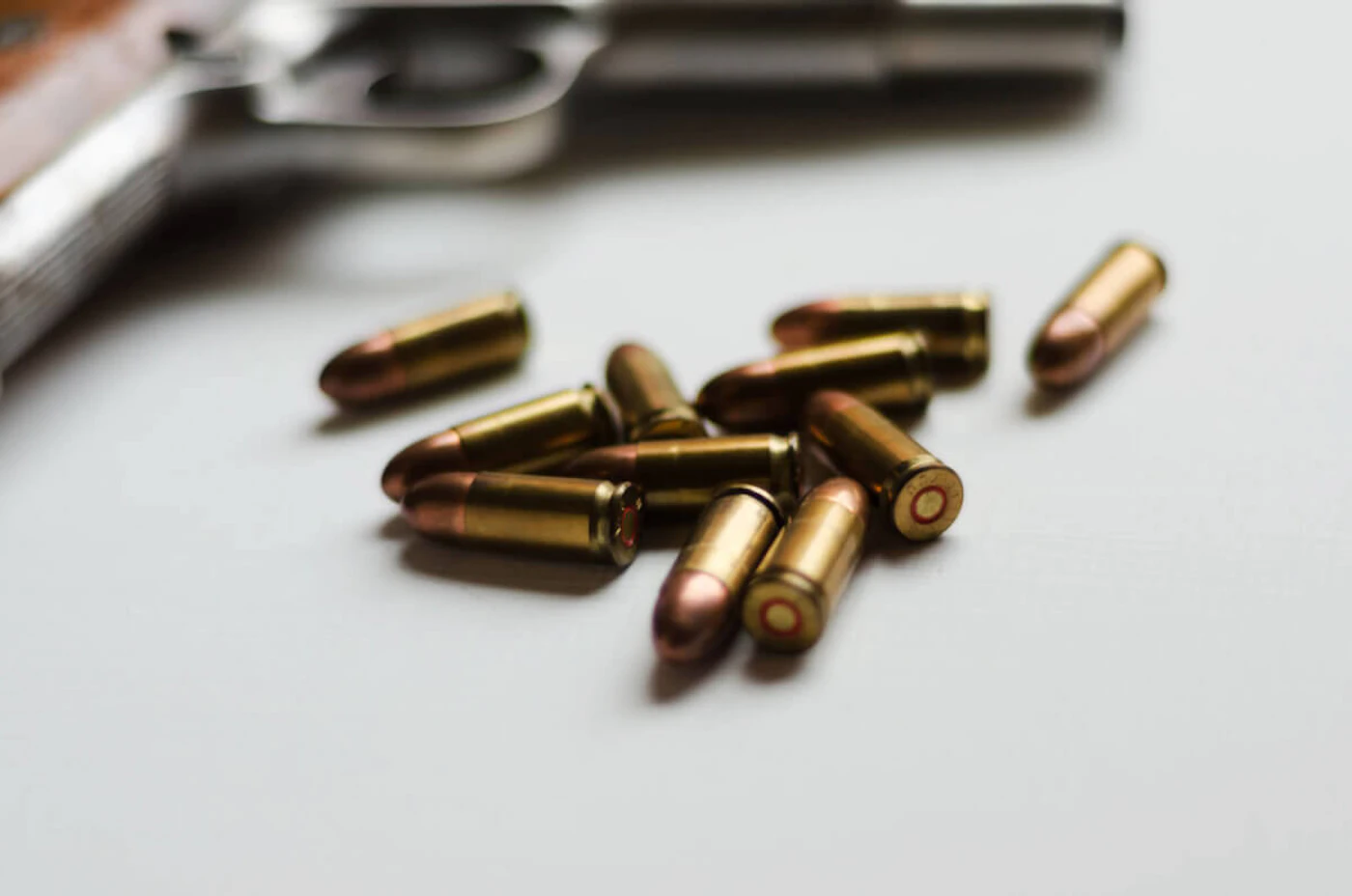Michigan wants to use COVID relief funds to train police officers as well as to get illegal guns off the street.
LANSING, Mich.—Michigan wants to use more than $75 million in pandemic relief funds to tackle violent crime across the state by improving police training and getting illegal guns off the street.
Gov. Gretchen Whitmer on Monday announced the MI Safe Communities framework, which, if enacted, would allow for investment in local police departments in order to get illegal firearms off the street. The governor said the framework works to ensure that every Michigander can live freely and safely.
“Every Michigander, no matter where they live or who they are, deserves to live safely,” Whitmer said. “As a former prosecutor, I am committed to protecting public safety and reducing crime so we can build strong, vibrant communities together.
“We must put Michiganders first by investing in law enforcement officers, getting illegal guns off our streets, and pursuing investments in jobs, justice, and education,” Whitmer continued. “I will work with anyone to bring down crime and help Michiganders feel safe in their community. Together, we can build a safer, more just Michigan where every family can thrive, where every kid can get a great education, and where every person has a path to a good-paying, high-skill job.”
READ MORE: FACT CHECK: How Michigan Police Remain Funded During Coronavirus Budget Crisis
Whitmer’s office said the governor has met with police officers, community leaders, faith leaders, and families from all over the state to gain different perspectives as she considers the policies. The governor’s office said Whitmer continues to be committed to working with police and their unions to help them better serve their communities.
The governor’s administration also has pointed to a spike in violent crimes across the state and elsewhere in explaining the need for the proposal. US homicides increased by 20% during the pandemic, according to The Associated Press. Violent crime spiked by 12% in Michigan, where the homicide rate increased by 36%.
Lt. Gov. Garlin Gilchrist called Whitmer’s framework a comprehensive plan that addresses many facets of violence facing Michiganders.
“Every person in Michigan, no matter where they live or who they are, deserves to live freely and safely in a way that enables them to be their best selves,” Gilchrist said. “Yet we recognize that is not and has not been true for too many communities across Michigan today, particularly for many Black Michiganders and other communities of color. We have seen that when law enforcement professionals live in the communities they serve, building and sustaining positive police-community relationships is much more possible and productive.
“This plan allows for police officers to receive more support and training, helping them to serve residents better,” Gilchrist continued. “I am encouraged to see this progress and a plan that recognizes and works to improve on the hardships communities of color across our state face. We look forward to continuing to invest in all of the mechanisms available to us to create communities where every person feels safe, with their needs met, knowing that the state of Michigan is invested in their future.”
SEE MORE: Decreased Militarization, Decreased Violence: What Defunding the Police Would Mean for Michigan
In addition to getting illegal guns off the street, the investment into local police departments as outlined by Whitmer’s proposal would also help strengthen departmental training as well as foster relationships between local departments and the Michigan State Police (MSP).
Whitmer also proposed increasing the number of visiting judges in order to combat a backlog of court cases, made worse by the coronavirus pandemic.
The framework is the latest in a series of attempts Whitmer has made to fund local police and first responders. She has previously signed budget bills allocating $1.4 billion to local governments to help them fund local police and fire departments as well as emergency medical services. She has also delivered $40 million in COVID hazard pay for local officers and first responders and more than $10 million in premium pay for MSP troopers.
Whitmer’s proposal has been backed by former law enforcement officers who now work in politics.
Wayne County Prosecutor Kym Worthy said she was ecstatic about the potential investments and encouraged change by saying, “The old ways of doing things no longer work, especially since family violence, gun violence, and criminal driving offenses are totally out of control.”
“I am confident that these discussions are going to be fruitful, continuous, and solution-oriented,” Worthy said. “While funding police officers is important, I must emphasize that properly funding prosecutors, focusing on mental health solutions for defendants and the victims of crime, and focusing on global and holistic results will ultimately be what drives down crime.”
The proposal also is championed by Rep. Debbie Dingell (D-Dearborn), who stressed the importance of addressing the rise in violent crime across the country.
“I applaud Gov. Whitmer for announcing this strong plan today to reduce crime and increase public safety across the state,” Dingell said Monday, the day of Whitmer’s announcement. “With federal dollars, congressional Democrats passed in the American Rescue Plan, we are able to take strong actions to ensure law enforcement agencies are equipped [with] the tools they need, get illegal firearms off the street, and invest in education and jobs as well as mental health and social services resources. Together, these actions will help law enforcement fight crime and make our communities safer.”





